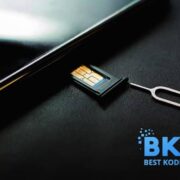In 2009, Bitcoin – the first-ever cryptocurrency in the world – was introduced. Back then, predicting what the crypto industry would look like in 2023 was impossible. 14 years later, we are living in a moment of exponential growth in blockchain technology. One of the most prominent ways blockchain has developed in recent years is decentralized application development.
With the introduction of smart contracts, it became clear how practical blockchain-based applications could be for investors and regular users. To create software like this one needs blockchain nodes. Let’s learn a little more about this new technology and, more specifically, focus on the two popular options for web3 development – Avalanche (AVAX) nodes and Cronos (CRO) nodes.
What are blockchain nodes?
Nodes are essential elements of a blockchain, typically computing devices authorized to maintain the distributed ledger and act as a central point of contact for various network operations.
The primary responsibility of a blockchain node is to verify the legitimacy of each new batch of network transactions, also known as blocks. Additionally, giving each node in the network a unique identifier makes it simpler to separate a node from others.
There are several types of blockchain nodes. Mainly, we can distinguish between full, light, and archive nodes.
Full nodes are blockchain nodes capable of storing all blockchain data and participating in block validating and state verification processes; simultaneously, they can deploy smart contracts into the blockchain. However, they can take a long time to synchronize massive data. Therefore, they require potent computers with enough hardware and bandwidth.
Light nodes gather information from block headers (primary blockchain data, e.g., summary info, timestamps, hash rates, etc.). This means that they store block summaries instead of cover-to-cover information. Additionally, they can perform data verification received for state roots in block headers. These blockchain nodes do not work for the blockchain consensus.
Archive nodes store all blockchain data, including the collection of historical states. They could be less appealing for an ordinary user, as they contain terabytes of information. However, they are essential for creating blockchain explorers, chain analytics, and similar services.
Note that depending on your network, there could be other types of nodes native only to a specific network.
How to use blockchain nodes in development
First off, since nodes carry copies of blockchains, they can successfully communicate with one another and, as a result, guarantee stable and reliable consensus maintenance. Blockchain nodes ensure that all data in the blockchain is recorded similarly across all nodes. Following that, nodes verify each blockchain transaction’s legitimacy and discard any that aren’t. They also provide a copy of the blockchain to any new node that joins the network.
Generally speaking, these features combined to enable the essence of decentralization – the primary motivation behind why Satoshi Nakamoto created Bitcoin. His goal was to provide the public with a system that could do all of the functions that banks performed for us without requiring reliance on a single organization. Bitcoin succeeds in this endeavor. Bitcoin nodes provide a peer-to-peer network for digital transactions while operating decentralized. They also serve as a secure, transparent, and irreversible ledger.
GetBlock to boost the Web3 industry.
How can GetBlock help you create a successful Web3-based product with the help of blockchain nodes? GetBlock is a pioneering node provider for 40+ networks. By offering quick access to network API, users can save time and money and build a top-tier product in no time. Two of the most growing popularity node options among GetBlock users are AVAX and CRO nodes.
Avalanche (AVAX) nodes
Launched by Ava Labs in 2020, Avalanche (AVAX) is a new-fashioned blockchain known as one of the most progressive “Ethereum killers”. Used for building multi-functional dApps, the blockchain is designed to provide top-quality scalability and unmatched block finality time.
GetBlock users can utilize shared node infrastructure via shared AVAX nodes or privately designed dedicated AVAX nodes created according to user requirements. You’re also getting 24/7 online support, high availability, API method selection, multiple locations, access to archive nodes, and so on.
Cronos (CRO) nodes
Cronos (CRO) is a new generation open-source Layer 1 network launched by Crypto.com CEX — a popular service offering crypto payment and staking solutions. Powered by the Ethermint technology, Cronos is fully compatible with the Ethereum Virtual Machine, allowing for fast asset porting between EVM-based chains.
CRO nodes are an excellent option for both beginners and advanced users in Web3 development. Similar to the previous option, you can choose a dedicated CRO node or a shared CRO node.
Closing thoughts
Web3 development is what brings new technologies into the real world. Services like GetBlock are explicitly designed for aspiring users who want to be part of the new wave. Using GetBlock’s AVAX or CRO nodes, you get immediate access to the most cutting-edge services and invest in further crypto development.













Comments